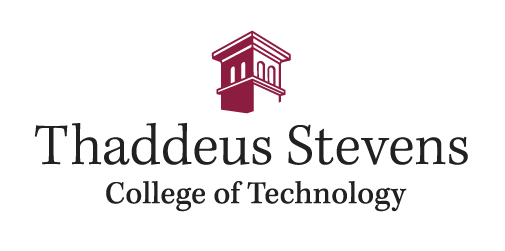Academics
Thaddeus Stevens College of Technology has been changing the lives of students for more than 115 years. TSCT provides a well-rounded, two-year education that nearly guarantees a good job and the opportunity for a better life. While most students accept one of several job offers they receive upon graduation, some choose to further their education. Accredited by the Middle States Association, Thaddeus Stevens College of Technology offers associate degrees and one-year certificates in a range of technical majors.
General Education Requirements
Individual programs of study are based on the assumption that technical training includes a theoretical and general education background in addition to technical-specific, hands-on experience. The following requirements were established to enable the student to communicate purposefully and reason effectively.
Students must successfully complete at least one general education class in each of the following four core areas: English, mathematics, science, and humanities. Students are required to pass a total of 25 general education credits.
Select any of the academic courses below for more information:
- Computer Information Systems
- English
- History
- Mathematics
- Physical Education & Health
- Science
- Social Sciences
Course Selection and Graduation Requirements
Students are responsible for fulfilling their graduation requirements, whether general education or technical. Faculty advisors assist students in planning course selections, but the final responsibility for meeting graduation requirements rests with each student.
With an advisor's help, students should schedule and register for the required general education courses listed on their model schedules. Departures from these requirements are only acceptable if approved by the advisor and the Vice President for Academic Affairs.
Academic Overload
An academic/credit overload occurs when a student registers for more than 19 credits per semester, such as three general education courses of three credits each, plus the required technical subjects. Most overloads occur when students try to make up required courses. Students wishing to schedule an overload must have the permission of their advisors.
Textbooks
Access information on ordering textbooks for your courses.
Continue Your Education After TSCT
Are you planning to continue your education after you graduate from Thaddeus Stevens College of Technology?
We created pathways - through articulation agreements with other colleges and universities - to support you in transferring credits to another college or university after earning your associate's degree.
These pathways, which were created through partnerships established with the colleges and universities listed below, will help simplify your transition as you prepare to earn a bachelor's degree.
